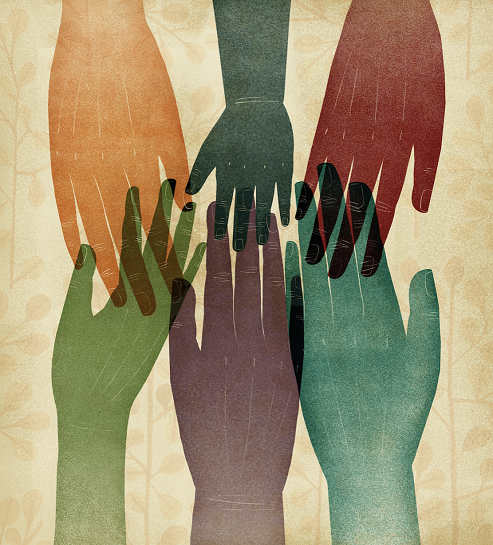While organized white supremacists were rallying in Charlottesville Virginia, I was 100 miles away from cell phone service, camping with my wife. We took a trip to a state park in Texas so we could unwind after the stress of launching Growing for Change, Sierra Club’s anti-oppression workshop. But we returned home to horror. Heather Heyer is dead and nineteen other peaceful protesters were injured on that already-infamous day in Charlottesville, when white supremacists openly rallied to promote their hateful beliefs and incite violence.
For me it felt like the shock of the November election all over again. As a queer Native woman, I know there is hate in the hearts of many. I’ve known it all my life. But to see racism normalized and supported by those in power left me feeling emotionally raw and above all, lost. How can the progressive movement respond to such violence? What do we do next?
Many of us are struggling with these questions. Our nation is so deeply traumatized by these and countless other examples of racist violence since the election of Donald Trump that many of us have turned to coping mechanisms to make it through this difficult time.
Some are coping through denial. The reality is that open, organized white supremacy is on the rise in our nation, and it poses a real threat to the lives and safety of people with marginalized identities, particularly people of color. I’ve seen some folks, even friends, minimizing the situation on social media. I can understand why - the world feels like a safer place if we tell ourselves that these organized racists are powerless, or that their ugliness doesn’t reflect a broader trend in American society. But that’s not reality. We have to face up to what’s going on in order to stop it.
I’ve also seen folks coping through escapism and avoidance. I don’t blame them - why read the news when it’s triggering and full of images of violence? People with marginalized identities should do what they need to do in order to protect their own mental health and to avoid re-triggering a life-long lived experience of trauma and marginalization. For those of us not directly impacted by this racist violence, it is time to learn from those most impacted and to to step forward into the struggle. Racism is not a people of color problem - just as homophobia is not a problem created by LGBTQ people, nor our responsibility to solve. Racism is a social construct that values the lives and contributions of white people over those of people of color. Everyone who benefits from this system has a duty to push back on it, alongside and led by those who are harmed by oppression.
Perhaps the most common form of coping I’ve seen is laughter. Humor and satire can bring people together on spaces like Twitter, where folks escaped their feelings of rage and hurt by cracking jokes about tiki torches. Last week it seemed like everyone I spoke to had seen Tina Fey’s hilarious monologue on Saturday Night Live on eating your feelings about Charlottesville by devouring an entire sheet cake.
Satire can change the world. Our laughter shows the bigots just how small and absurd they truly are, and helps fuel social change. What’s most important though, is we all work through the coping mechanisms we’re employing to stay sane in this historical moment. It’s not enough to eat a cake and feel better - folks who are beaten down in the streets for the color of their skin or the person that they love do not have this choice. Only by uniting and directly challenging the white supremacist agenda everywhere it rears its ugly head can we beat back the rising tide of fascism in our nation.
That might be easier for some of us than others - people of color and other folks with marginalized identities are quite used to coping with a hostile world. But we are also the target of these attacks. People with marginalized identities need our allies to work through their feelings and take action to challenge white supremacy, before it’s too late.
However you’re coping, remember that it takes real action to make change. It’s been said before but bears repeating: if you’ve ever wondered what you would have done to resist if you had been alive during the civil rights movement, or during the Nazis’ rise to power - stop wondering. This is the moment. It’s happening right now. The organizers on the ground in Charlottesville wrote this list of things you can do in your own community to resist the rise of fascism. Check it out and let us know in the comments - what are you doing to fight back?
